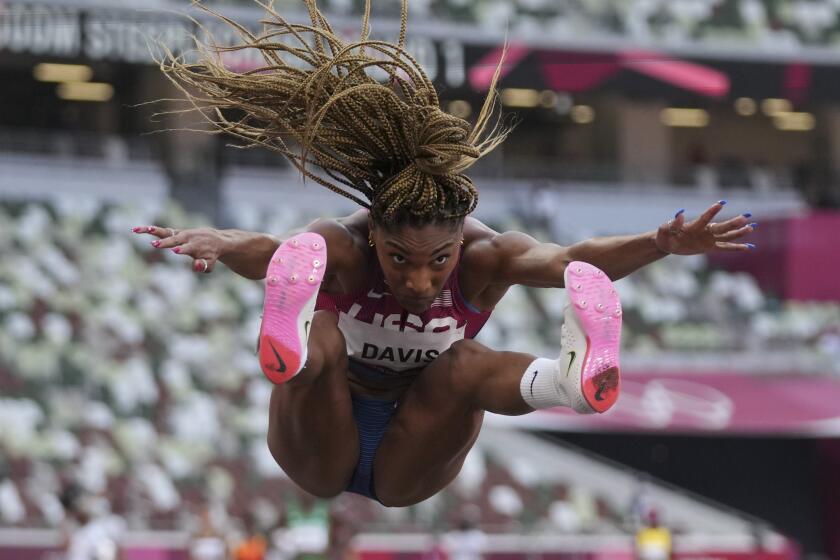Rai Benjamin beat a record and still lost in an all-time great Olympic race
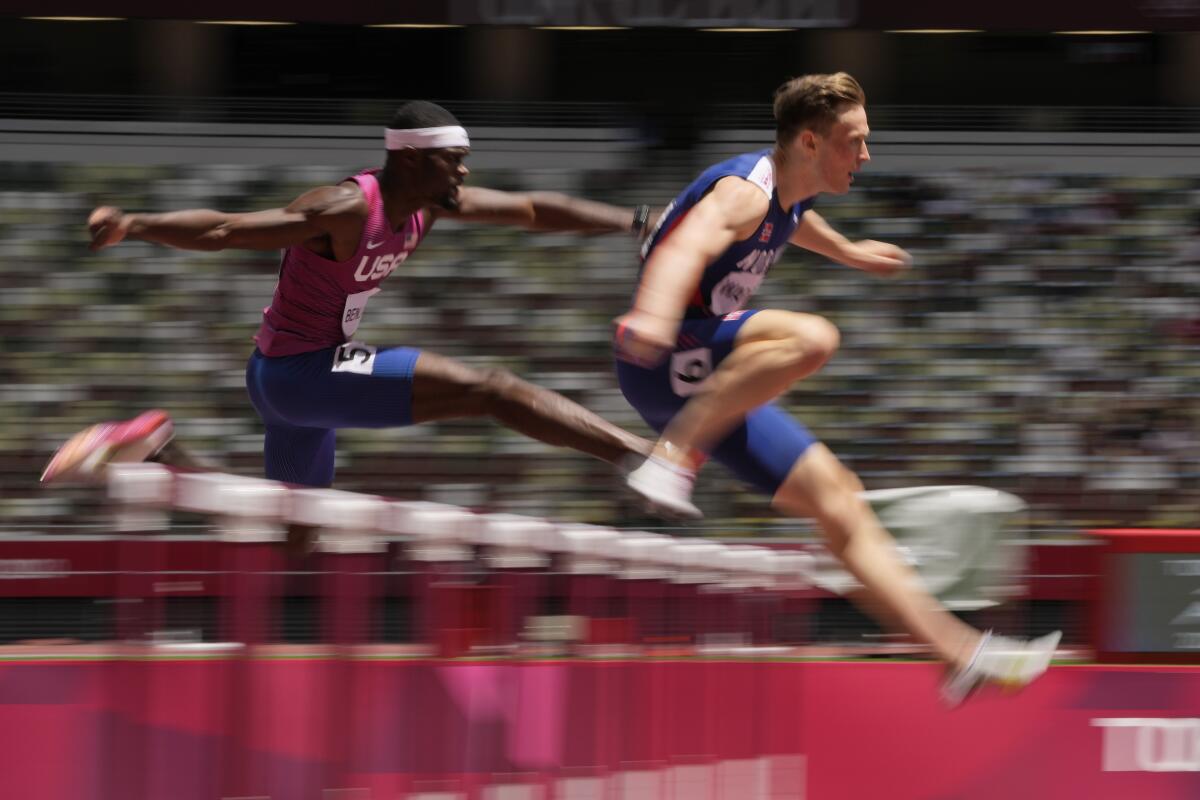
TOKYO — It might take a while. A few weeks. Several months. Perhaps years.
At this point, Rai Benjamin is only starting to process what happened Tuesday at Olympic Stadium in the men’s 400-meters hurdles final.
Benjamin ran the most important race of his life. On his sport’s biggest stage. Posted a world-record time.
And lost.
In perhaps one of the greatest races in Olympic history, Karsten Warholm of Norway held off Benjamin and a blazing field to win in a world-record time of 45.94 seconds.
Warholm broke his own record of 46.70. Benjamin finished in 46.17.
“If you would have told me I was going to run 46.1 and lose, I would probably beat you up and tell you to get out of my room,” Benjamin told reporters.
And if someone had told Warholm that Benjamin would run that time?
Tara Davis struggled with anxiety and suicidal thoughts before seeking therapy and turning her life around. Now, she’s competing for Olympic gold.
“I would have put myself on the first flight home,” Warholm said.
Instead, Warholm went somewhere no man had gone before in the 400 hurdles: under 46 seconds.
Consider: The world record in the 400 meters is less than three seconds faster — and runners don’t have to negotiate 10 hurdles.
The 400-meter hurdles final wasn’t the only event Tuesday that offered a glimpse of what’s to come in track and field in the next few years.
Athing Mu, a 19-year-old from New Jersey, remained on track to become a possible face of the sport by winning the women’s 800 meters, the first American to do so since Madeline Manning in 1968 at Mexico City.
“This is just the beginning, there’s more,” Mu said, adding, “My time is now.”
Benjamin aimed to make a similar statement.
After holding off Benjamin down the stretch, Warholm looked up at the videoboard to see his winning time.
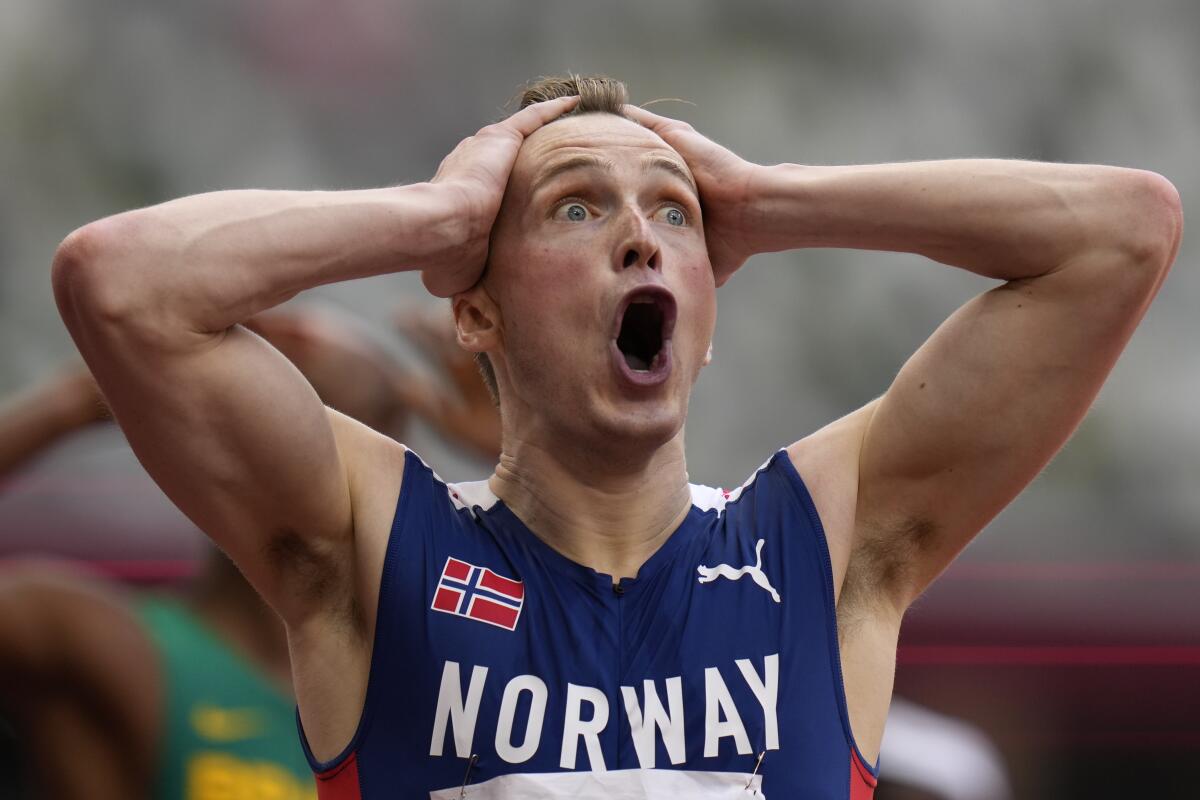
“I thought, ‘This is sick,’” Warholm said.
Benjamin felt that way.
“I saw the 45.9 and I was just like, ‘What the hell?’ And then I saw 46.1 and I’m like, ‘There’s no way I just ran 46 and lost.’”
Benjamin ran faster than Kevin Young’s Olympic-record 46.78, a mark set at the Barcelona Games in 1992 that stood for nearly 30 years. So did Alison Dos Santos of Brazil, who finished Tuesday’s race in 46.72 to win bronze.
But that was not fast enough.
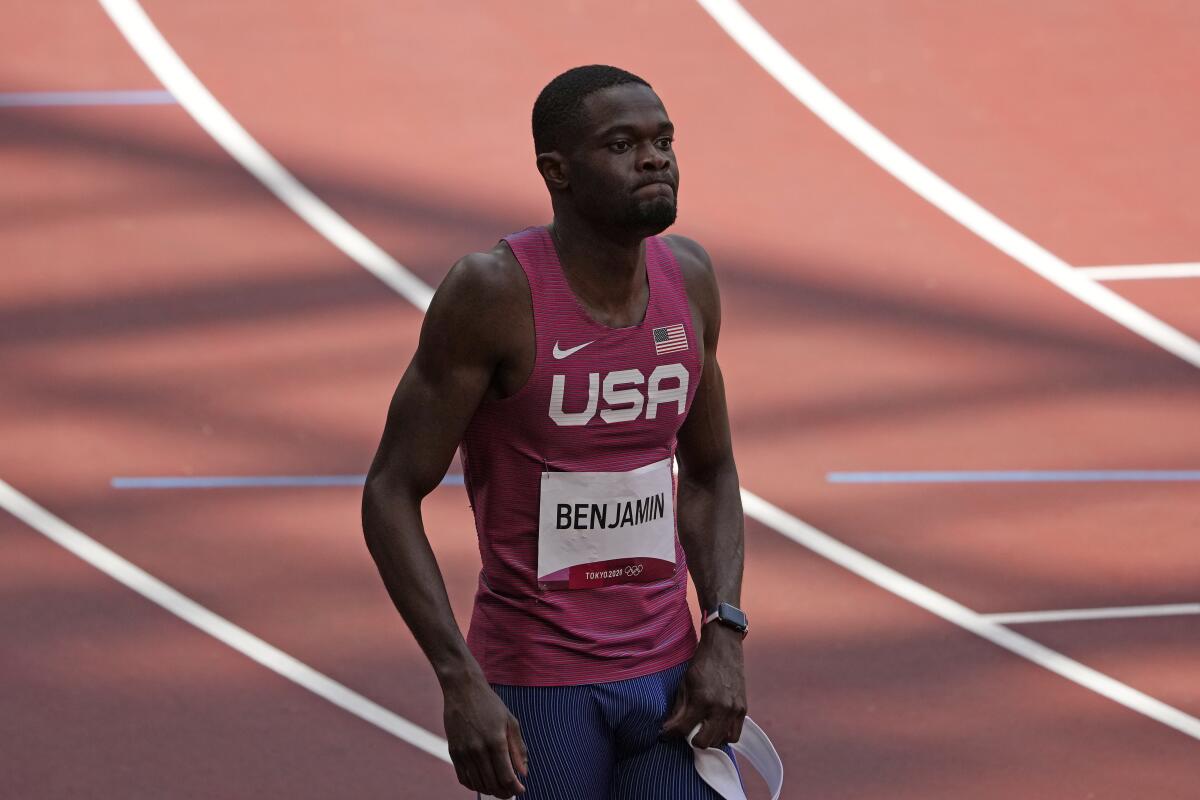
A composed Benjamin, who grew up in Mount Vernon, N.Y., and competed in college at UCLA and USC, repeatedly said he would need time to process what happened and why.
“The kid’s amazing, man,” he said of Warholm, 25. “You can’t be mad at all. As a competitor, it hurts a lot, but that’s just the nature of the sport.”
Benjamin, 24, described it as “the best race in Olympic history,” adding with due respect that Young and 400-meter legend Edwin Moses “could not run what we just ran.”
Benjamin said he could not sleep the night before the race because the anticipation was so great. The eight runners in the final are all “cool with each other” but were silent in the call room before the race, he said.
But before the race, Benjamin said Warholm advised, “Let’s go out and have some fun.”
Warholm, running in Lane 6, pushed the pace from the outset to stress Benjamin in Lane 5 and other runners as well.
“I knew I had really gutted them out and they were probably at a place where they didn’t want to be,” Warholm said. “I didn’t want to be there myself because it hurts.”
Benjamin said he made a small error at the fourth hurdle, giving Warholm the slightest edge.
“Everything is just like white noise,” Benjamin said. “I didn’t hear anything; I didn’t see anyone until hurdle seven. And at that point it‘s just like, ‘I’m behind and I’ve got to just go get that guy.’”
Warholm knew Benjamin would be coming.
“I ran sort of scared,” he said, “but that’s something that I always do.”
As they cleared the final hurdle, “I just ran with my life,” Warholm said. “I would die for that gold medal.”
Benjamin gave chase. But he could not close the gap.
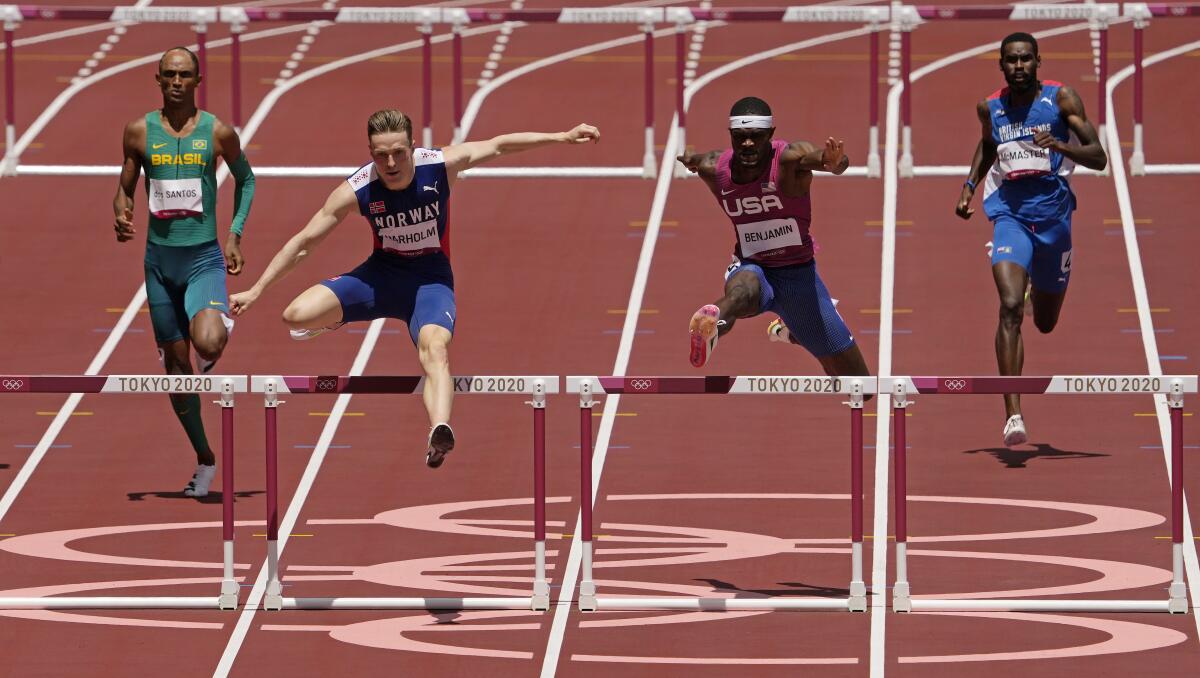
“Just ran out of real estate,” he said. “I was running my butt off coming home and just didn’t have enough space.”
Benjamin’s Olympics are not over. He said he would run in the 1,600-meter relay, so there is another shot at gold.
And there are more duels with Warholm ahead. The 2022 world championships will be held in Eugene, Ore. The 2024 Olympics in Paris are only three years away.
Despite his disappointment, Tuesday’s historic race set the stage.
“It just goes to show where we are in the sport,” Benjamin said, “and where the event is going.”
More to Read
Go beyond the scoreboard
Get the latest on L.A.'s teams in the daily Sports Report newsletter.
You may occasionally receive promotional content from the Los Angeles Times.

